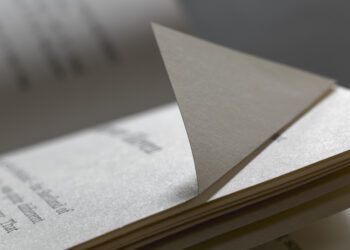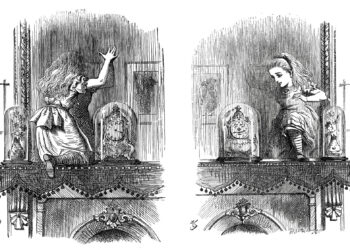A few days ago, an old friend sent out the following tweet:
This used to be a key method in building relationships. You’d go over to someone’s house and surreptitiously scan their shelves to find out what you had in common. He has a copy of Daydream Nation, we’re likely to get along. Her collection is mighty heavy on Billy Joel albums, I think it might be time to leave. I suppose that these days this sort of inventory-taking has now been replaced by Facebook stalking. Perhaps that’s what all the young folks are doing when I see them in bars staring into their screens rather than talking to one another.
While I’ve managed to go digital for my music and movies, it got me thinking about the never-ending task of trying to fit a lifetime’s worth of books into one’s house. I suppose this is one of the real strengths of the ebook, but as a stubborn devotee of ink and paper (no, it’s not the smell, it’s that I refuse to submit to the required vendor lock-in and frankly, most days I need a break from staring into a screen), I find myself constantly culling overflowing bookcases. Am I really ever going to re-read this book, or would it live a better life if donated? And what if I ever want to move? What am I going to do with all of these books?
Then I came across the video below and felt a little better.
Discussion
8 Thoughts on "So You Think Your Bookcase is Overcrowded…"
I still have 3,000 or so CDs in my home office. (And I still publish CD HotList: New Releases for Libraries.) It’s kind of weird to think about my kids standing around wondering what to do with my digitally-encoded plastic after I’m gone the same way I’ll do with all my dad’s vinyl when he passes.
I have a similar volume of CDs as Rick but I also possess 1500 or so vinyl albums and strangely have been suckered into the whole rebir
th of vinyl thing that’s been going on for the last few years. I still prefer vinyl to CD, not necessarily for the audio quality but for the experience – the bigger packaging, the design, the bigger words – I’m not getting any younger.
None of my kids (I have three) share my passion for buying music in a physical format and although you see teens/young adults browsing the racks of record and CD stores, it still tends to be the domain of the older person. How long before there will be no physical media thanks to lack of demand or that it’s priced so high that no-one apart from the rich or obsessive collector will pay for it,
Somebody must be buying LPs. I went into Urban Outfitters the other day and found, to my great surprise, a while section with LPs of modern artists (Taylor Swift, Ariana Grande, Beyonce, etc.) along with a display of turntables housed in suitcases to give them a retro look.
On a much smaller scale, I went through this experience in moving from PA to TX after retiring as director of Penn State Press. It required 8 skids to transport my 3,000+ books to my new home, where they are now arranged on shelves purchased at IKEA set up in one half of my garage. They are organized by subject and, within subject, alphabetically by author, so that I can easily find anything I need. Since I still work part-time as an acquiring editor, I find it helpful to be able to look at a bibliography of an older book in choosing expert readers for a manuscript under review. About three-quarters of the books were ones I either copyedited or acquired (or both) at the university presses of Princeton and Penn State, and many of the authors remain my personal friends, so they have a special meaning for me they wouldn’t necessarily have for anyone else. I’m thinking that one or more of the seven high schools that exist in the town where I live now might want to have some of these books in their collections when I’m gone. (I have a collection of 100+ rare books also.)
P.S. I also hold on to my collection of 1,000+ LPs.
Moving my collection will require picking up my iPad and giving it to the first niece who says, “I have dibs on Sandi’s iPad!”
My house has a too-small dining room that I use as my “library.” I’ve wanted to replace the Ikea bookcases with built-in shelving. But when I sell the house, will the young family that presumably buys it have any use for built-in bookcases or see them as a waste of space and lumber? I wonder if anyone tracks the sale of bookcases.
I had so many shelves of books when I inherited my Aunt’s house. She had shelves and shelves too. Some rare books, possibly even. Priorities–I kept the cookbooks! Anyhow, out went a TON of books to get into the house. Mostly to GoodWill. I keep a two serials in paperback or hard back and a few other self-improvement classics–can’t get rid of Men are from Mars…. I’m in a Kindle now, and I love that I can read whatever I want in public and no one can tell if I’m reading trash or some great intellectual work! I can’t get rid of all my books, those are the ones that define me to some extent, so anyone who comes to visit, can scan the shelves and get a clue about my interests. When someone’s not interested in my shelves, then it’s probably not going to go well! PS, My vinyl went out, it was too much to replace and too much hassle to record. Still sort of feel bad about all that.



